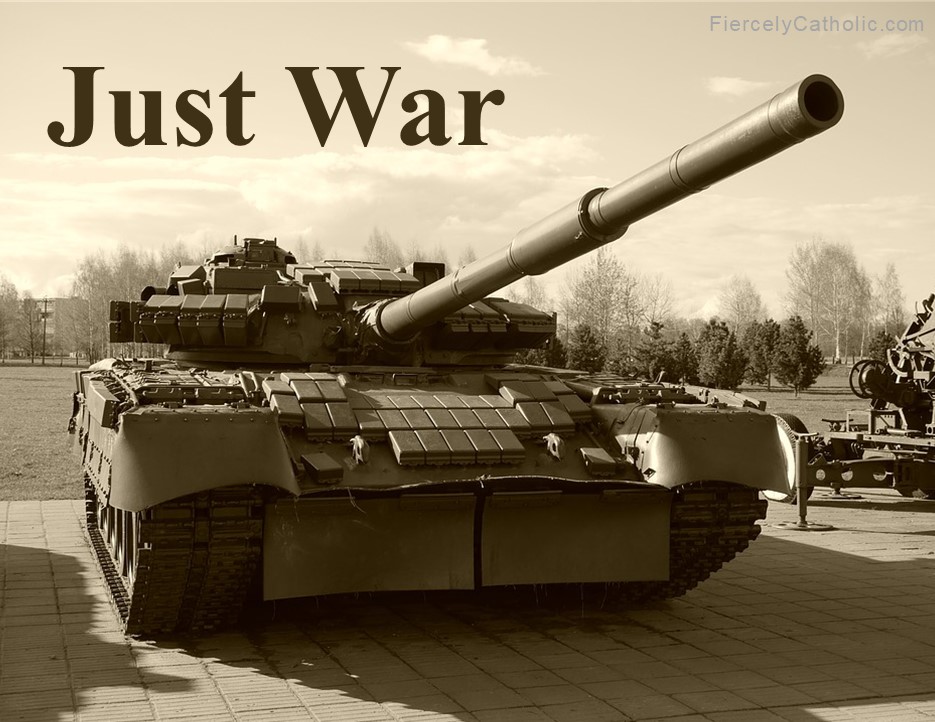
The Catholic Church teaches that war is never good. But the Church also understands that violence can be justified when it is necessary to save lives and promote justice.
Entering into a war must meet certain criteria to be justified. The Church would consider the violence morally wrong if even one of the criteria were not met.
War is only permitted in response to serious aggression and should be carried out in proportion to the threat. It should be a last resort and likely to succeed.
Even if a war is just, there are rules for how that war is carried out and how conflicts are fought.
Any violence of war should be used cautiously and precisely, and should cause as little pain, destruction, and loss of life as possible.
There is an obligation to defend against aggression:
For rulers are not a cause of fear to good conduct, but to evil. Do you wish to have no fear of authority? Then do what is good and you will receive approval from it, for it is a servant of God for your good. But if you do evil, be afraid, for it does not bear the sword without purpose; it is the servant of God to inflict wrath on the evildoer.
Romans 13: 3-4
Sometimes evil can only be stopped by force:
Christians have a responsibility to protect others:
There is such a thing as a Christian soldier:
The strict conditions for legitimate defense by military force require rigorous consideration. The gravity of such a decision makes it subject to rigorous conditions of moral legitimacy. At one and the same time: A) The damage inflicted by the aggressor on the nation or community of nations must be lasting, grave, and certain. B) All other means of putting an end to it must have been shown to be impractical or ineffective. C) There must be serious prospects of success. D) The use of arms must not produce evils and disorders graver than the evil to be eliminated. The power of modem means of destruction weighs very heavily in evaluating this condition. These are the traditional elements enumerated in what is called the “just war” doctrine. The evaluation of these conditions for moral legitimacy belongs to the prudential judgment of those who have responsibility for the common good.
Catechism of the Catholic Church 2309
Begin by supposing that War is bad:
The Church sets strict limits to war:
Certainly, war has not been rooted out of human affairs. As long as the danger of war remains and there is no competent and sufficiently powerful authority at the international level, governments cannot be denied the right to legitimate defense once every means of peaceful settlement has been exhausted. State authorities and others who share public responsibility have the duty to conduct such grave matters soberly and to protect the welfare of the people entrusted to their care. But it is one thing to undertake military action for the just defense of the people, and something else again to seek the subjugation of other nations. Nor, by the same token, does the mere fact that war has unhappily begun mean that all is fair between the warring parties.
Pope Paul VI, Gaudium et Spes, December 7, 1965
Christians were initially forbidden from serving in the military:
The Truth, Goodness, and Beauty of the Catholic Church
More romantic than Romeo and Juliet:
Share this page with friends and family to start a conversation about your faith.
Don’t miss a post. Learn more about the Catholic Church and strengthen your Catholic faith.
Find more Fiercely Catholic video issues here.
Subscribe here.


